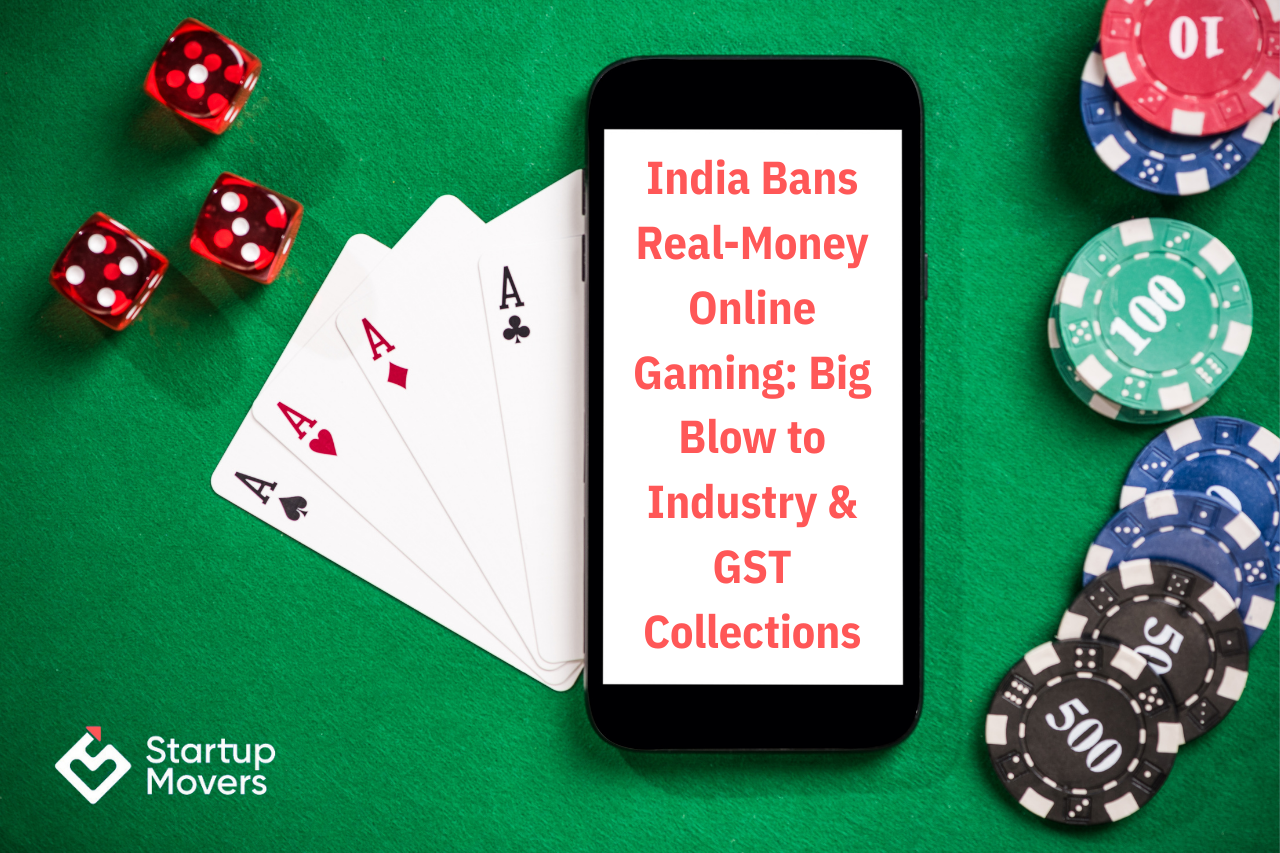Supreme Court Sets New Rulebook for Startup Funding and Exits in India




In a landmark decision, the Indian Parliament has enacted the Promotion and Regulation of Online Gaming Bill, 2025 imposing a sweeping ban on real-money online games such as fantasy sports, poker, and rummy. While e-sports, social and educational gaming remain untouched, the decision has jolted the industry, forcing giants like Dream11, MPL, PokerBaazi, WinZO to shut paid operations, rethink strategies, and prepare for massive job cuts.
The Promotion and Regulation of Online Gaming Bill, 2025 Bill, passed by Lok Sabha on 20 August 2025 and by Rajya Sabha on 21 August 2025, makes a clear distinction between what is banned and what is permitted in the online gaming world.
Understanding the Online Gaming SectorThe online gaming industry is divided into three segments: e-sports, which are competitive digital sports; social games, which are casual and generally safe for entertainment or learning; and money games, which involve real stakes and have been linked to addiction and financial risks. |
What’s Banned:
Any real-money games (RMG), where players pay money or stakes with the hope of winning more money are now completely banned. This applies to all types of games, whether based on skill or luck. The ban also covers advertising, payments, and promotions of such games. The government has the power to block websites and apps offering these games under the IT Act, 2000.
What’s Allowed:
The law encourages safe and positive types of gaming:
With India’s fast digital growth, online gaming expanded quickly, but money-based games also led to serious social and financial problems.
According to government statements, nearly 45 crore people have been adversely affected by online money gaming, aggregating losses of over ₹20,000 crore. Source: PIB.
These platforms have been linked to:
The ban on online real-money gaming in India could hit the economy hard. Industry groups estimate a loss of ₹20,000 crore in annual GST and TDS revenue.
The sector, worth about $25 billion, also supports nearly 2–4 lakh jobs, many of which are now at risk.
Before the ban, the government had collected ₹6,909 crore GST in just six months after the 28% tax was imposed. Experts warn the ban may push users toward illegal offshore platforms, further reducing tax inflows.
Current Status of India’s Online Gaming IndustryIndia’s online gaming market was $3.7 billion in 2024 and is expected to more than double to $9.1 billion by 2029, with real-money games making up 86% of the revenue. The country has 591 million gamers (20% of global gamers), 11.2 billion mobile game downloads, and nearly 1,900 gaming companies employing 1.3 lakh professionals. The sector has attracted $3 billion in FDI, mostly in pay-to-play games. Source: ET |
Startups and large platforms like Dream11, MPL, PokerBaazi, and WinZO face heavy financial stress, while the government risks losing significant tax revenues from the sector.
The All India Gaming Federation (AIGF) warned that the prohibition could destroy legitimate livelihoods and push users toward unregulated, illegal gambling platforms.
Dream11, India’s biggest fantasy sports platform valued at $8 billion, has already withdrawn from its ₹358 crore ($44 million) jersey sponsorship deal with the BCCI. Source: The Hindu
The company had signed a three-year contract in 2023 to feature its logo on Team India’s jerseys. Along with My11Circle, Dream11 contributes nearly ₹1,000 crore to Indian cricket through sponsorships of the national team and IPL.
The legislation includes tough punishments:
Offenses are treated as non-bailable, allowing for arrests without warrant.
Dream11: Immediately suspended all paid contests and real-money games. The firm is now focusing entirely on free-to-play formats and its other ventures like FanCode, Cricbuzz, and Sportz Drip. ET
Mobile Premier League (MPL): Halted all real-money gaming offerings. MPL reassured users that they can still withdraw their balances, and they are pivoting to free games and other revenue models.
Zupee: Stopped real-money games but continues to offer popular free titles such as Ludo Supreme and Snakes & Ladders.
PokerBaazi (via Nazara Technologies’ associate Moonshine Technologies): Suspended all real-money operations. Nazara’s almost ₹800 crore investment is now at risk of being written off. ET
WinZO: Announced an immediate, responsible withdrawal of all real-money gaming operations, aiming to comply fully with the new law while exploring alternate paths forward.
India’s ban on real-money online gaming has created shockwaves across the industry, wiping out billions in potential revenue, threatening thousands of jobs, and forcing companies to either pivot to free-to-play formats or shut down operations.
While the move aims to regulate the sector and curb risks of addiction and money laundering, its long-term success will depend on balancing consumer protection with innovation, employment, and revenue growth.
Frequently Asked Questions (FAQs)
Which online games are banned under the new law?
All real-money gaming platforms, whether skill-based like Dream11 or luck-based like poker and rummy are banned. This includes popular apps like Dream11, MPL, My11Circle, PokerBaazi, WinZO, and others that involve monetary stakes.
Are e-sports and games like BGMI, Free Fire still allowed?
Yes. e-Sports and games such as BGMI, Free Fire, Call of Duty Mobile, Candy Crush, and Clash of Clans are exempt because they don’t involve real-money winnings, they use cosmetic upgrades or in-game achievements instead.
What happens to the gamers, will they be punished?
No. Gamers are considered victims, not offenders. The law targets operators, advertisers, and anyone helping run or promote these real-money games.
What penalties do violators face?
Individuals or companies running or promoting real-money games can face up to 3 years in prison and fines up to ₹1 crore. Repeat violators may face up to 5 years in prison and fines of ₹2 crore.
When will the online gaming ban come into effect in India?
The Promotion and Regulation of Online Gaming Act, 2025 officially became law on 22 August 2025, when President Droupadi Murmu gave her assent.
However, the Act will come into full force only after the central government issues a notification in the Gazette specifying an exact effective date

